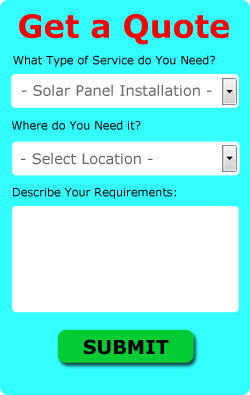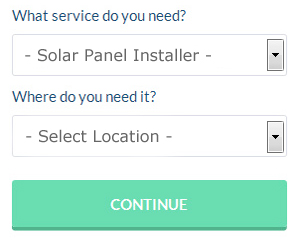Solar Panel Installers: The UK's geographical location presents a favourable opportunity for harnessing solar power through installations. However, it is essential to consider the benefits and drawbacks of having a solar power system installed. Currently, it is an opportune moment to contemplate solar power installations due to government-supported initiatives like the Smart Export Guarantee (SEG), which provides avenues for financial gains from such systems.
SOLAR PHOTOVOLTAIC SYSTEMS
Solar Photovoltaic (PV) is the technical term for generating electricity from sunlight. In the UK, and across Britain as a whole, there is ample sunlight to generate significant results through rooftop solar PV installations. As a result, it is indeed feasible to reduce your electricity bills and potentially achieve a modest return on investment by participating in the Smart Export Guarantee scheme, which allows you to sell surplus electricity back to your energy supplier.

Taking advantage of the newly introduced Green Homes Grant, you can even receive financial assistance towards the cost of installing solar panels. This grant, announced in the summer of 2020, allows you to apply for funding ranging from £5,000 to £10,000 when implementing specific green energy improvements to your property. By combining this grant with the Smart Export Guarantee (SEG) scheme, it becomes evident why now is the ideal time to seriously consider installing solar panels in your UK home.
SOLAR THERMAL SYSTEMS
Solar-powered installations offer the opportunity to decrease your heating expenses by harnessing the free power of sunlight. By utilizing a solar thermal system, you can enjoy the warming of your water, even in the coldest winter months, which in turn reduces the amount of gas or electricity required to reach the desired temperature. During summer, a solar-powered thermal system installed on your UK property can fulfill all your hot water needs.
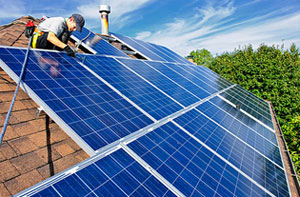
Property owners in the UK utilizing a photovoltaic thermal system to heat their water can also benefit from the Renewable Heat Incentive (RHI) scheme. This scheme, initially introduced in the commercial sector and later extended to domestic use in 2014, offers a support package lasting for seven years to those who transition to renewable heating methods. Eligible participants of the RHI receive a quarterly cash return, determined by the size and type of equipment installed, throughout the entire seven-year duration of the scheme. The RHI provides a valuable opportunity for property owners to not only contribute to renewable energy adoption but also receive financial incentives for their commitment to sustainable heating solutions.
CONSIDERATIONS FOR SOLAR
There are a few matters you'll need to consider before you begin any solar panel installation on your UK property:
- Does your roof face south or south-west? - This is the best direction from which to capture the maximum possible amount of sunlight on your solar PV panels.
- Does your home's roof have any overgrown trees or high buildings close by that throw shade on it? - You need to have full sunlight for maximum effectiveness, and any shade will lower the energy generated by the solar panels.
- Will you need to get planning permission? - In most instances you should not require planning permission for the installation of solar panels to your home in the UK. Your local council can provide advice and guidance on planning permission requirements if your property live in a conservation area, have a flat roof or own a listed building.
- Does the installation of solar panels on my house directly impact on its resale value? - The basic, but not very helpful response from the Homeowners Association is that solar panels can have both a negative and positive impact on the market value of your house. Recent research however shows, that because of the growing awareness in environmental concerns, solar panel installations are showing more positive effects on property values than they were previously.
THE BENEFITS OF SOLAR
Maintenance Free - Solar-powered installations in the UK are exceptionally low-maintenance. Besides occasional cleaning, the panels can be left to operate independently and typically maintain functionality for at least twenty-five years. While a solar PV installation with battery storage capacity may require more maintenance compared to a basic grid-tie setup, advancements in technology are improving the storage, efficiency, and lifespan of batteries. As a result, maintenance requirements for battery systems are becoming more manageable over time.
No Noise Pollution - Solar installations are completely silent, unlike other alternative energy options such as wind turbine generators that can produce sounds that many people in the UK find bothersome. Solar PV and thermal systems in the UK do not have any moving components during regular operation, ensuring a noise-free experience.
Bill Reduction - It's no surprise that the sun serves as our primary source of free energy. So, why not capitalize on what it offers? By investing in a solar installation, you'll notice a reduction in your power bills. On average, a solar PV system can save you anywhere between £90 and £370 annually on your electricity bill, depending on your individual circumstances. However, the actual savings will vary depending on the size and capacity of your specific installation.
Extra Income - The Smart Export Guarantee provides an opportunity to sell any surplus electricity produced by solar panels back to your utility supplier. Through this scheme, you can receive quarterly payments directly to your bank account or have the option to apply the payments as credits towards your electricity bills. This Government-backed initiative establishes a short-term contract between homeowners and their utility providers. The advantage of this short-term contract is that it allows consumers to switch providers and take advantage of the best tariffs as soon as the contract concludes.
Low Carbon Footprint - Whether you are considering solar panel installations, be it PV or thermal, they will provide your family with green and renewable energy. These installations generate electricity without any pollutants or carbon emissions, allowing you to contribute towards a cleaner environment. In fact, by embracing solar power, you can prevent approximately two tonnes of carbon from entering the atmosphere on an annual basis.
FINDING A CERTIFIED INSTALLER
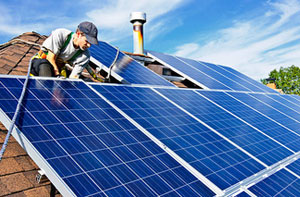
If your neighbours, family, and friends have already installed solar panels on their homes, it's beneficial to seek their advice regarding installers in the UK. However, it's important to remember to obtain at least three estimates before making a decision. When requesting a quote, inquire about any available grants in your area for renewable energy initiatives. These grants can assist in reducing the initial cost of purchasing and installing your solar system.
It is also advisable to inquire about the previous work of any potential solar panel installer. A reputable and professional solar installation company in the UK will have a comprehensive portfolio showcasing their projects on various types of homes.
It is highly recommended for a reputable solar installation company in the UK to be affiliated with or hold membership in at least one alternative energy trade association. These organizations provide certifications, support, and training on all aspects of solar and other alternative energy systems, including working practices, health and safety, and equipment. When selecting a solar panel installer in the UK, be sure to consider their membership in one or more of the following professional associations within the green and alternative energy industry.
The Renewable Energy Association (REA) - The Renewable Energy Association (REA) is the leading organization in Great Britain dedicated to the clean technology and renewable energy sector. Its primary objective is to foster the development of a zero-carbon economy. With a membership of approximately five hundred companies, the REA plays a vital role by providing education and training initiatives while also exerting its influence to shape government policies in favor of sustainable energy solutions.
MCS (Microgeneration Certification Scheme) - Solar panel systems should ideally be installed by a certified technician under the Microgeneration Certification Scheme (MCS) in the UK. This scheme ensures that both the solar panels and associated equipment meet quality standards, and that the company responsible for providing and installing the system is fully trained and qualified. The MCS supports various sustainable technologies, including solar photovoltaic panels, solar battery storage, biomass heating systems, and air source heat pumps. By choosing an MCS-certified technician, you can have confidence in the quality and expertise of the installer and the sustainability of your chosen technology.
STA - The Solar Trade Association (STA) collaborates with the Government, industry stakeholders, local authorities, and key players in the sustainable and solar energy sector to deliver cutting-edge technological solutions and training. With a focus on both small-scale generation on residential properties and large solar energy farms, the STA offers comprehensive support and training on equipment, installations, and other aspects of the solar industry. Renowned as an innovator in the solar sector, the STA plays a pivotal role in advancing the adoption of solar energy and driving forward the development of the industry.
Solar Panel Cleaning UK
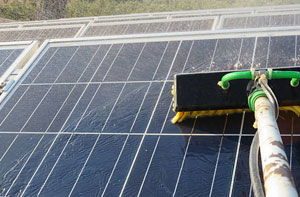
When considering the installation of solar panels on your UK home, cleaning may not be the foremost concern on your mind. However, maintaining clean panels is crucial as dirt can impact their performance. It is wise to establish a strategy for keeping them clean from the outset. Additionally, it is possible to invest in automatic cleaning systems for solar panels. Although this may increase the initial cost, it is advisable to have them installed simultaneously with the panels to ensure optimal efficiency and convenience. By proactively addressing cleaning needs, you can maximize the effectiveness of your solar panel system....... READ MORE
How Many Solar Panels Are Needed to Power a House?
The number of solar panels needed to power a house in the UK depends on several factors, including the energy consumption of the house, the location within the UK, the efficiency of the solar panels, and the available roof or land space for installation. Here's a general guideline for estimating the number of solar panels required:
- Calculate your energy consumption: Determine how much electricity your house consumes on average over a year. You can find this information on your electricity bills, usually measured in kilowatt-hours (kWh).
- Assess solar potential: Consider the amount of sunlight your location in the UK receives throughout the year. The UK's solar potential is lower than many other regions due to its northern latitude and variable weather. Some parts of the UK receive more sunlight than others. You can use tools like solar irradiance maps or consult with a local solar installer to get this information for your specific location.
- Determine panel efficiency: Solar panel efficiency varies, but a standard solar panel typically has an efficiency of around 15-20%. This means it can convert 15-20% of the sunlight it receives into electricity. Higher-efficiency panels will require fewer panels for the same energy output.
- Calculate panel output: Multiply the number of hours of peak sunlight in your location by the panel efficiency to estimate the daily energy output of a single panel. In the UK, the average number of peak sunlight hours per day can range from 2 to 4 hours, depending on your location and the season.
- Calculate the number of panels: Divide your annual energy consumption (in kWh) by the daily energy output of a single panel. This will give you an estimate of the number of panels required to meet your electricity needs. Remember to account for factors like shading, panel degradation over time, and efficiency losses.
- Account for available space: Consider the available space for solar panel installation on your roof or property. If you have limited space, you may need to choose higher-efficiency panels or install a smaller system.
- Consult a professional: It's essential to consult with a local solar installer or contractor who can perform a site assessment, consider local regulations, and provide a precise estimate based on your specific circumstances.
In the UK, a typical household might need anywhere from 10 to 20 solar panels to cover a significant portion of its electricity needs. However, this number can vary based on your location and other factors. Consulting with a professional solar installer is the best way to determine the exact number of solar panels required for your UK home. They can provide a tailored assessment and design a solar system that meets your specific energy requirements and available space.
Solar Panel Pros and Cons
Solar panels are a fantastic way to embrace renewable energy, offering a range of benefits for homeowners. One of the biggest advantages is the potential to lower your energy bills. By generating your own electricity, you rely less on the grid, which can lead to significant savings over time. Solar panels are also eco-friendly, reducing your carbon footprint and helping combat climate change. Plus, with government incentives available, the upfront cost can often be offset, making them a more accessible option for many households.
However, it's important to consider the potential downsides too. Solar panels can be costly to install initially, which may not suit everyone's budget. They also require a suitable roof – ideally one that's in good condition and positioned to maximise sunlight. If your home has lots of shading or a north-facing roof, the efficiency of solar panels might be reduced. Additionally, while maintenance is minimal, occasional cleaning and checks are necessary to keep them running smoothly.
Despite these challenges, the long-term benefits of solar panels often outweigh the drawbacks. They're a reliable, sustainable energy source that can add value to your home and lower your dependence on traditional utilities. If you have a property that suits their requirements and can make the initial investment, solar panels are a smart step towards a greener, more energy-efficient future.
Solar Panel Batteries
If you aim to store the electricity generated by your solar PV panels for future use, solar battery storage is the solution. This allows you to harness the stored electricity to power your appliances, home, or even charge your phone. The capacity and size of the solar batteries you acquire will depend on your specific requirements. For example, if you frequently use a refrigerator or air conditioner, a single battery may not provide sufficient capacity. It is important to assess your energy needs and consult with a professional to determine the appropriate number and size of solar batteries to meet your power consumption demands effectively.
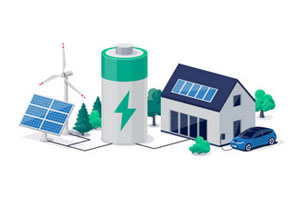
When purchasing solar batteries for your new system, it is crucial to consider the Depth of Discharge (DoD). The DoD plays a significant role in the longevity of the battery. Higher DoD values contribute to longer battery life. Batteries that are degraded or over discharged tend to be less cost-efficient as they store less energy. Additionally, the capacity of a solar battery is an important factor to consider as it determines the amount of electricity available for use. By carefully evaluating the DoD and capacity of solar batteries, you can make informed decisions to ensure optimal performance and cost-effectiveness for your solar system.
The stored energy in the charged battery can be utilised during periods without sunlight, including nighttime, resulting in savings on your power bill. Even on overcast days, your solar panels continue to generate cost-effective energy. Furthermore, you have the potential to receive payments from your electricity provider for any excess energy that you do not consume.
Solar Panel Maintenance
Solar panel maintenance is essential for ensuring the long-term efficiency and effectiveness of solar energy systems. Regular upkeep can extend the lifespan of solar panels, maximize energy production, and minimise unexpected repair costs.
One crucial aspect of maintenance is keeping the solar panels clean. Dust, dirt, leaves, and bird droppings can accumulate on the panels' surface, reducing their ability to capture sunlight. Regularly washing the panels with a soft brush or a hose can help maintain their efficiency. Some solar panel owners also invest in automated cleaning systems or hire professionals for periodic cleanings.
In addition to cleanliness, monitoring the system's performance is crucial. Most solar installations come with monitoring software that tracks energy production. Keeping an eye on this data allows homeowners or businesses to identify any issues promptly. If a drop in energy production is detected, it could indicate a malfunctioning component that requires attention.
Furthermore, inspecting the physical condition of the panels is essential. Check for any signs of damage, such as cracks or loose connections. Damaged panels should be repaired or replaced promptly to prevent further deterioration.
Overall, a proactive approach to solar panel maintenance can help maximise the return on investment and reduce the environmental impact of solar energy systems. Regular cleaning, monitoring, and inspections ensure that solar panels continue to harness clean, renewable energy efficiently for years to come.... READ MORE.
Do I Need to Tell my Electricity Supplier I Have Solar Panels?
Yes, it is generally recommended to inform your electricity supplier that you have installed solar panels. There are several reasons for doing so:
- Metering and Billing: Your electricity supplier needs to be aware of your solar panel installation to ensure accurate metering and billing. This information allows them to properly credit any excess electricity you generate back to the grid or calculate net metering if applicable in your area.
- Feed-in Tariffs or Incentive Programs: If your country or region has feed-in tariffs or other incentive programs that provide financial benefits for solar energy generation, notifying your electricity supplier is typically a requirement to participate and receive the associated payments.
- Connection and Grid Integration: Informing your supplier allows them to ensure proper connection and integration of your solar system with the electricity grid. It helps them manage the flow of electricity and maintain grid stability.
- Safety and Maintenance: In the event of maintenance or repairs on the grid, your electricity supplier should be aware of your solar panels to ensure the safety of their technicians.
It is best to contact your electricity supplier directly and inform them about your solar panel installation. They will provide guidance on the necessary steps and any specific requirements they may have.
UK Solar Panel Tasks

Your local solar panel technicians will be glad to help you with several sustainable energy services including solar panel advice, renewable energy solutions, solar PV for business, solar hot water systems, electric heating, solar panel accessories, LED lighting, ground source heating systems, electric vehicle charging points, the maintenance of solar panels, energy storage systems, 200w solar panels, solar thermal energy solutions, the repair of solar panels, solar panels for garages, solar panel repairs, energy assessments, solar thermal heating installations, solar panels for greenhouses, solar panel surveys, solar panel mounting, battery storage systems, rooftop solar panels, the supply and installation of solar PV panels, solar energy installations, solar PV upgrades, biomass boilers, solar panel installation estimates, the replacement of solar panels, EV charging points, 100 watt solar panels, cheap solar panels, new build solar panel installation, batteries & smart grids, alternative energy solutions, and other similar services. Listed are just a small portion of the tasks that are accomplished by those specialising in solar panels. UK companies will be delighted to keep you abreast of their whole range of solar services.
Solar Panel Installer Services UK
- UK Hot Water Systems
- UK Solar Panel Installers
- UK Solar Panel Fitting
- UK Solar Panel Cleaning
- UK Solar Panel Maintenance
- UK Solar Panel Installation
- UK Solar Panel Advice
- UK Solar Panel Replacement
- UK Solar Panel Services
- UK Renewable Energy Solutions
- UK Residential Solar Panels
- UK Solar Water Heating
- UK Cheap Solar Panels
- UK Commercial Solar Panels
More UK Services
While you might just be seeking a professional who can do solar panel installation in the UK, you could additionally find green energy in the UK, roof cleaning in the UK, SKIP HIRE in the UK, gas boiler installation in the UK, renewable energy in the UK, solar thermal heating in the UK, solar panel repairs in the UK, solar panel cleaning in the UK, solar panel maintenance in the UK, heat pumps in the UK, underfloor heating in the UK, hot water tank installation in the UK, scaffolders in the UK, solar hot water in the UK.
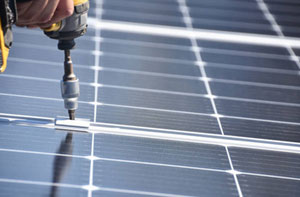 Solar Panels UK
Solar Panels UK Solar Panel Installers Near UK
Solar Panel Installers Near UK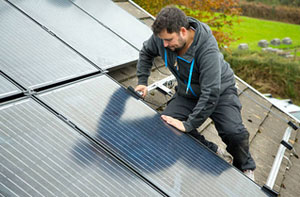 Solar Panel Installation UK
Solar Panel Installation UKMore UK solar panel installers: Solar Panel Installers, Solar Engineers, Solar Fitters, Solar Panel Systems, Solar Installation, Solar Panel Systems, Solar PV Panels, Solar Installation, Solar Energy, Solar Installations, Solar Panel Systems, Solar Engineers, Solar Fitters, Solar Energy Panels, Solar Panel Installers, Solar Panel Fitters, Solar Engineers, Green Energy, Solar Panel Systems, Solar Panel Fitters, Solar Power Panels, Solar Power Panels, Solar Panel Installers, Solar Panel Fitters, Solar Installers, Solar Energy, Solar Energy Panels, Solar Installations, Solar Energy Panels, Solar PV Panels, Solar Installation, Solar Engineers, Solar Energy, Green Energy, Green Energy, Solar Power Systems, Solar Power Systems, Solar Panels, Solar Energy, Solar Energy, Solar Fitters, Green Energy, Solar Energy, Solar Technicians, Solar PV Systems, Solar Power Panels, Solar Panel Fitters, Solar Energy, Solar Installers, Solar Installation, Solar Energy, Solar Fitters, Green Energy, Solar Installations, Solar Installation, Solar Panel Installers, Solar Power Systems, Solar Panel Installers, Solar Installation, Solar Power Panels, Solar Technicians, Solar Panel Systems, Solar PV Panels, Solar Installations, Solar Power Systems, Solar Fitters, Solar Technicians, Solar Technicians, Solar Energy, Solar Energy, Solar Engineers, Solar Panel Fitters, Solar Installation, Solar Energy, Solar Power Panels, Solar Panels, Solar Installation, Solar Engineers, Solar Energy, Solar Energy Panels, Solar PV Panels, Solar Panels, Green Energy, Solar Technicians, Solar Installation, Solar Power Systems, Solar Panel Fitters, Solar Fitters, Solar Energy, Solar Installers, Solar Technicians, Solar Panel Installers, Solar Installation, Solar Fitters, Solar Panels, Solar Panel Fitters, Solar Energy, Solar Panel Fitters.
Solar Panel Installers - Solar Panel Installation - Solar Panel Fitters - Solar Thermal Panels - Solar Panel Repairs - Solar Panel Batteries - Solar Panels - Solar Panel Installers Near Me

